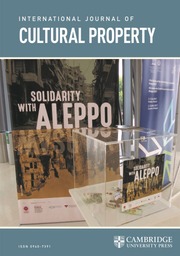Article contents
Argungu Fishing Festival in Northwestern Nigeria: Promoting the Idea of a Sustainable Cultural Fest
Published online by Cambridge University Press: 08 November 2007
Abstract
There is a saying that Africa is the festival continent. Throughout the year in towns and villages across the continent, colorful and vibrant religious, harvest, fertility, and cultural festivals are held. Bare-hand fishing competition among thousands of fishermen, equipped with a hand net and large gourd, is the main event of the cultural extravaganza at Argungu in Kebbi State in northwestern Nigeria. The competitors splash into the stream, scouring the water for huge freshwater fish. The Argungu fishing festival (Fashin Ruwa) is a celebration of life. It is a tool of conserving natural resources, maintaining and promoting traditional life. It is the precursor of today's fishery management measure. The local people believe they have been fishermen for all time. The effective conservation of natural resources is closely linked to the use of the local knowledge and hence the life of the community. It is also part of an ancient fertility ritual which, from the point of view of the local Kebbawa people, is the most important aspect of the occasion. The festival takes place usually in February after all agricultural work is finished. It marks the end of the growing season, and it opens the fishing season with a bang.
- Type
- Research Article
- Information
- International Journal of Cultural Property , Volume 14 , Issue 3: Special Issue: Hunting as Heritage , August 2007 , pp. 329 - 337
- Copyright
- © 2007 International Cultural Property Society
References
- 2
- Cited by


